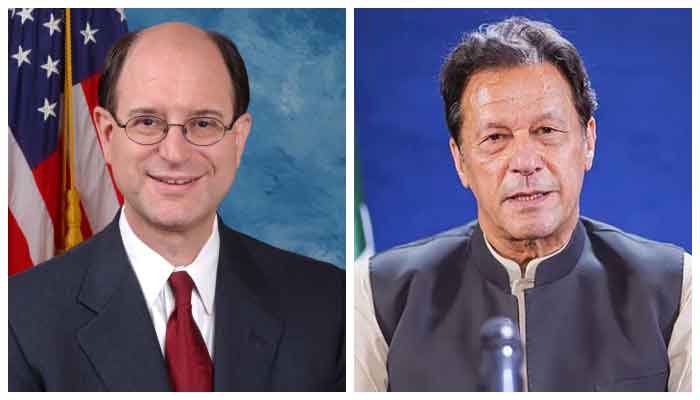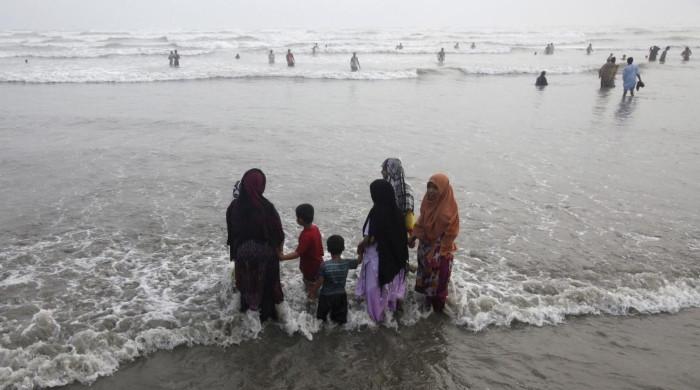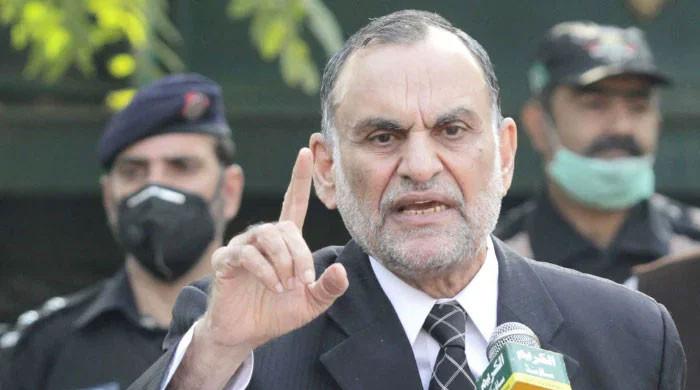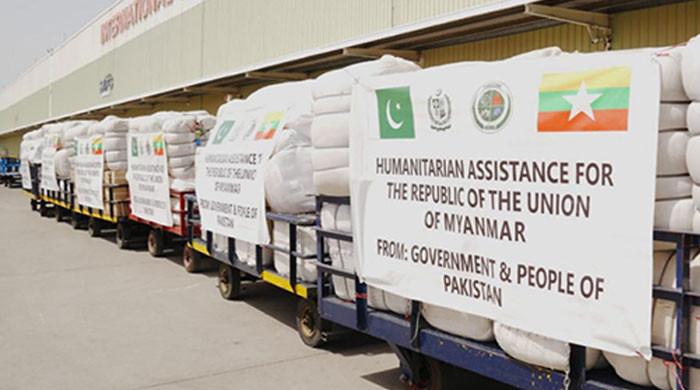In letter to Antony Blinken, US lawmaker highlights ‘human rights, democracy’ issues in Pakistan
"We must not shy away from raising our voice when human rights of Pakistani people are at stake," writes Brad Sherman
April 12, 2023

- Congressman Brad Sherman writes letter to Antony Blinken.
- Top US diplomat urged to take notice of human rights issues in Pakistan.
- Blinken requested to urge Pakistani authorities to investigate alleged abuses.
WASHINGTON: Congressman Brad Sherman has written a letter to US Secretary of State Antony Blinken highlighting issues related to human rights and democracy in Pakistan.
In his letter (dated April 12), which he also shared on his official Twitter handle, Sherman while mentioning US support to Pakistan during times of need urged the country’s top diplomat to support human rights in Pakistan as it is also in the US national interest.
“I know human rights are a priority for you, and I recognised your commitment and the Administration's work on democracy, human rights, and rule of law. The United States does not involve itself in Pakistan's internal governmental matters — I respect its constitution and its democratic process — but we must not shy away from raising our voice when the human rights of the Pakistani people are at stake,” he wrote.
Sherman, who recently held a telephonic discussion with former prime minister Imran Khan, is among those US lawmakers and influential persons who are now speaking in favour of Pakistan Tehreek-e-Insaf (PTI) after the party engaged another lobbying firm to project its goals overseas.
In his three-page letter, the congressman asked Antony Blinken to reaffirm the US position that the Pakistani government should respect the right to speak, organise, and demonstrate peacefully.
“It is critical that we see a calm, orderly, democratic, and prosperous Pakistan where Pakistanis can have a free and open political dialogue.”
Sherman wrote: “I am particularly alarmed by incidents over the last year, especially the alleged torture and even sexual abuse of political figures such as former PM Khan's Chief of Staff Shahbaz Gill and journalist Jameel Farooqui.
"Thankfully, they both were released, but the chilling effect of their detention and treatment continues to resonate. Human Rights Watch (HRW) called for an urgent investigation into Gill's complaints, citing ‘numerous credible allegations of torture and ill-treatment of political opponents’ in Pakistan during previous governments. HRW also questioned sedition charges against Gill. The April 6 arrest of former minister Ali Amin Gandapur adds to these concerns.”
The lawmaker highlighted numerous cases filed against the PTI chief and the “use of force against his supporters, the detention of protesters under sweeping counter-terrorism laws, and the closing space for free speech”.
Congressman Sherman noted that efforts by the authorities to delay elections in two key provinces are another sign of “skirting” democratic processes and urged Pakistan to respect the Supreme Court ruling that the elections should proceed on a timely basis.
He also asked the secretary of state to form a panel of law experts to review the issue of the election delay verdict of the top court as the government is of the view that the matter should be heard by the full court.
“I will continue to monitor the situation. I ask you to guide the United States-Pakistan policy toward a greater commitment to human rights and to use all US diplomatic channels to urge Pakistani authorities to investigate the alleged abuses and to hold accountable anybody who may be responsible.
"Most importantly, I urge the authorities to make sure that going forward political figures or citizens who simply want to demonstrate are not subjected to anti-democratic consequences.”
In the concluding para of the letter, Sherman wrote that the US-Pakistani relationship is one of the most important foreign policy relationships and accordingly should reflect US priorities regarding democracy, human rights, and the rule of law in Pakistan.











